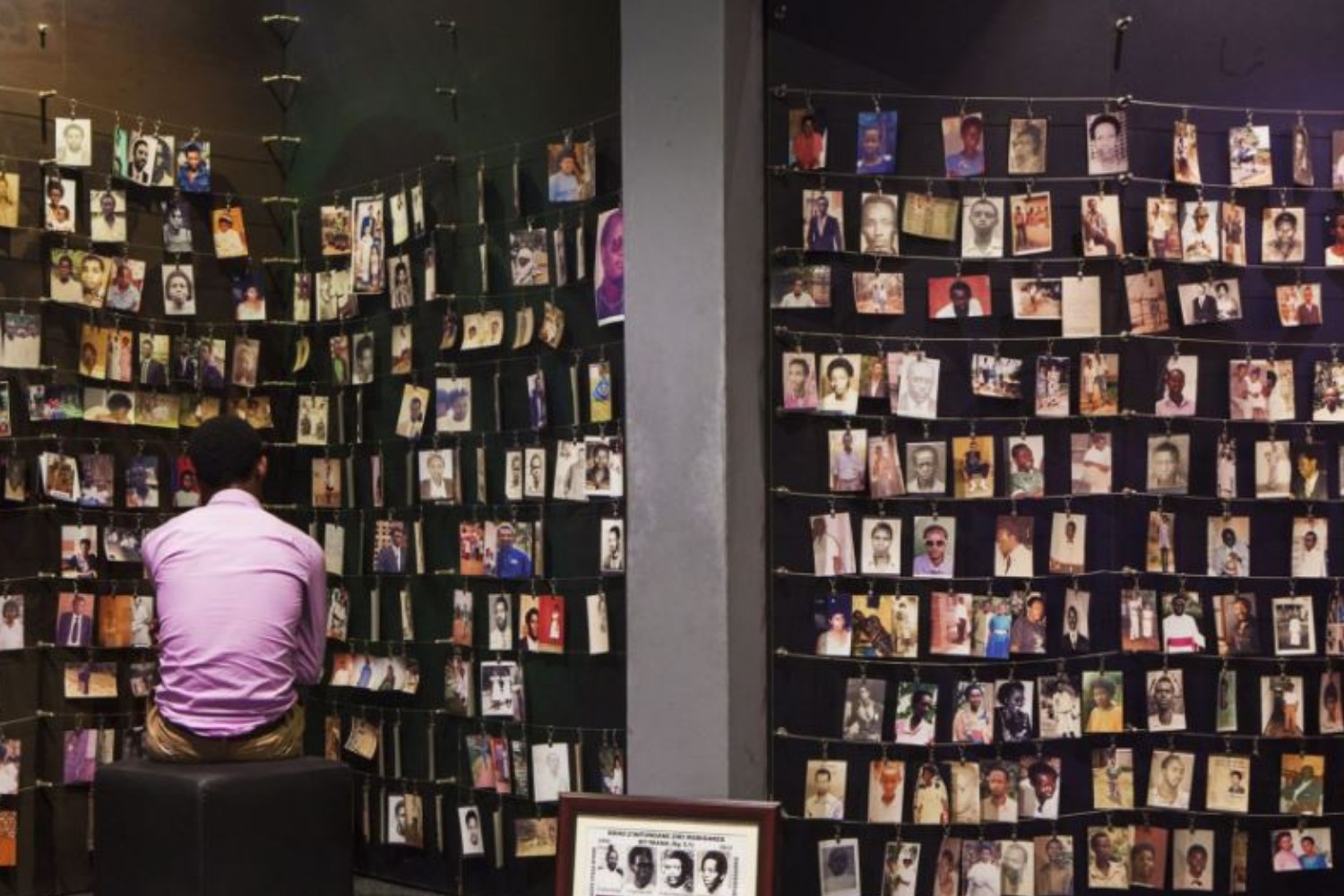Regional
Kwibuka 30: How Belgium sent Rwanda's Queen Gicanda to her death in 1994

At Mwima Mausoleum in Nyanza District, Rwanda's First Lady Jeannette Kagame pays tribute to Queen Rosalie Gicanda, who was killed during the 1994 Genocide against the Tutsi. Also present were the Queen's close family, friends, government officials and church leaders.
Belgium ordered Rosalie Gicanda,
the last Queen of Rwanda, to leave its territory in 1994 weeks before the
Genocide against the Tutsi began and when she needed constant medical
attention.
This was revealed on Saturday, April 20, during the commemoration
of Gicanda, the wife of King Mutara III Rudahigwa. Queen Gicanda was killed in
the Genocide against the Tutsi when she was 66.
Despite the knowledge of a genocidal plan by the Rwandan
government, in February 1994, Belgian authorities wrote to Queen Gicanda, who
was receiving medical treatment in the city of Nivelle, asking her to leave
even as her visa was still valid, according to Minister of National Unity and
Civic Education Jean Damascene Bizimana.
Gicanda was killed on April 20,
1994 in the former Butare Prefecture at the orders of Captain Ildephonse
Nizeyimana, a commander in the then Rwandan army.
Gicanda was killed one day after the only Tutsi prefect Jean
Baptise Habyarimana of Butare had been replaced by an extremist, Sylvain
Nsabimana who was tasked to fast-track the Genocide against the Tutsi by the
president of the genocidal government Theodore Sindikubwabo.
“Before the Genocide began, Queen Rosalie Gicanda was in Belgium
for medical treatment. Her visa was still valid and Belgium had sufficient
information about the preparation of the Genocide,” Bizimana said.
“The mayor of Nivelle wrote to Gicanda on February 3, 1994,
informing her that, based on the decision of the Belgian Minister of Defence,
she was instructed, first, to leave the Belgian territory not later than
February 12, 1994,” Bizimana said, quoting from a copy of the letter Gicanda
received.
Second, the minister said,
Gicanda was instructed not to go to Luxembourg or to the Netherlands.
Third, the mayor informed Gicanda that she would be prosecuted
if she did not obey the decision.
Moreover, the Queen was threatened with deportation, which would
be preceded by detention, Bizimana said.
Following the letter, one Dr Gakwaya informed the city of
Nivelle that Gicanda was receiving strong medication that required constant
attention by the doctor and that withdrawing from medication suddenly would affect
her.
The city authorities replied to Dr Gakwaya that Gicanda would be
allowed to stay a little longer but not later than March 1994. Dr Gakwaya asked
for a written confirmation of the extension, but was never given it.
When February 12 approached, Queen Gicanda said that she would
leave Belgium as she had agreed to do.
“That is the wish of God. I will go back home to see my mother,”
she told her carers, adding that she did not wish to put them in trouble.
“It is obvious that Belgium has a role in her murder, based on
the undisputed evidence of the preparation of the Genocide that was available
to them,” Minister Bizimana said.
The Minister noted that a 1997 assessment by the Belgian Senate
of the role of Belgium in the Genocide against the Tutsi, showed that between
January 19 and March 11, 1994 a Belgian lieutenant in the UN forces in Rwanda
wrote 29 letters documenting the Rwandan government’s plan for genocide.
“The Belgian Senate also showed that on January 15, 1994, the
Belgian Ambassador Johan Swinnen, who was in Rwanda, sent a telegram to the
Minister of Foreign Affairs informing him about the preparation for genocide,”
Bizimana noted.
The Belgian Senate, he said, also found that a Belgian
intelligence officer compiled a 13-page report documenting the genocidal plan
and submitted it to various leaders, including the King of Belgium on February
2, 1994.
“The next day, on February 3 as I have noted, Gicanda received
the letter giving her a limited time period to return to Rwanda, a country that
was preparing a genocide to exterminate one part of Rwandans which [Queen Gicanda]
belonged to,” Bizimana said.
In 2012, Capt Nizeyimana, who ordered the murder of Queen
Gicanda, was convicted of genocide crimes and sentenced to 35 years
in prison by the UN International Criminal Tribunal for Rwanda.








